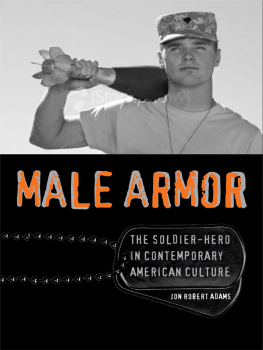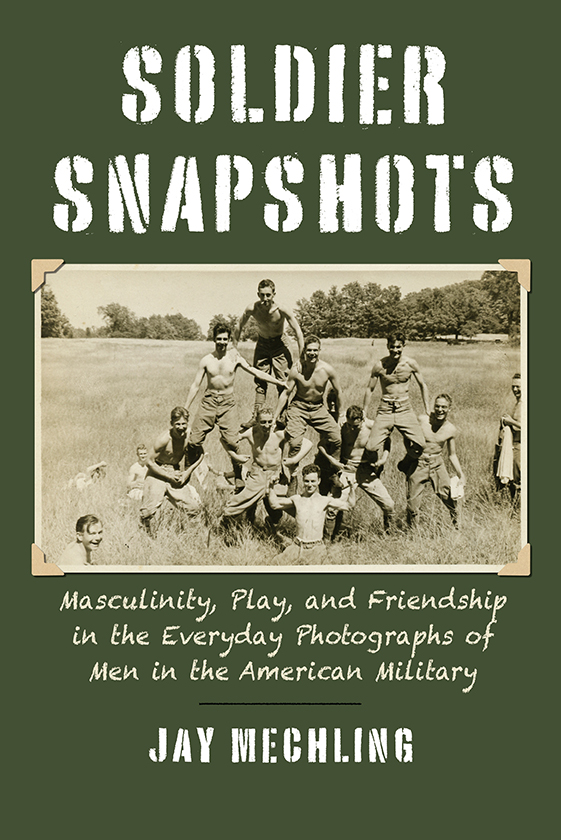Jay Mechling - Soldier Snapshots: Masculinity, Play, and Friendship in the Everyday Photographs of Men in the American Military
Here you can read online Jay Mechling - Soldier Snapshots: Masculinity, Play, and Friendship in the Everyday Photographs of Men in the American Military full text of the book (entire story) in english for free. Download pdf and epub, get meaning, cover and reviews about this ebook. City: Lawrence, year: 2021, publisher: University Press of Kansas, genre: Science. Description of the work, (preface) as well as reviews are available. Best literature library LitArk.com created for fans of good reading and offers a wide selection of genres:
Romance novel
Science fiction
Adventure
Detective
Science
History
Home and family
Prose
Art
Politics
Computer
Non-fiction
Religion
Business
Children
Humor
Choose a favorite category and find really read worthwhile books. Enjoy immersion in the world of imagination, feel the emotions of the characters or learn something new for yourself, make an fascinating discovery.

- Book:Soldier Snapshots: Masculinity, Play, and Friendship in the Everyday Photographs of Men in the American Military
- Author:
- Publisher:University Press of Kansas
- Genre:
- Year:2021
- City:Lawrence
- Rating:5 / 5
- Favourites:Add to favourites
- Your mark:
Soldier Snapshots: Masculinity, Play, and Friendship in the Everyday Photographs of Men in the American Military: summary, description and annotation
We offer to read an annotation, description, summary or preface (depends on what the author of the book "Soldier Snapshots: Masculinity, Play, and Friendship in the Everyday Photographs of Men in the American Military" wrote himself). If you haven't found the necessary information about the book — write in the comments, we will try to find it.
In his introduction Mechling offers his thoughts about how to undertake the interdisciplinary study of American culture; he draws from history, folklore, anthropology, sociology, rhetoric, psychology, gender and sexuality studies, ethnic studies, popular culture studies, and visual studies to reveal the intricacies of how men use their folk practices in an all-male group to manage the paradoxes of their friendship and comradeship under sometimes stressful conditions. Soldier Snapshots begins with a brief history of war photography and establishes the nature of vernacular photography: the snapshot. This is followed by a jargon-free discussion of the key ideas about masculinity and the vernacular practices of men in groups, exploring male friendship, the important role of play in mens relationships, and the ways animal buddies adopted by male friendship groups actually tell us even more about male friendship and issues of trust.
In the final section Mechlings careful analysis reveals how the men employ different folk practicesincluding rough-and-tumble playfighting, building human pyramids, bathing naked in public, cross-dressing, hazing, and gallows humorin order to manage their relationships. Regardless of the mans sexual orientation and sexual identity, the strong heterosexual norm in the military means that the men must find ways to understand and even enact or perform their feelings of bonding while still defining those feelings and acts as heterosexual.
Jay Mechling: author's other books
Who wrote Soldier Snapshots: Masculinity, Play, and Friendship in the Everyday Photographs of Men in the American Military? Find out the surname, the name of the author of the book and a list of all author's works by series.






